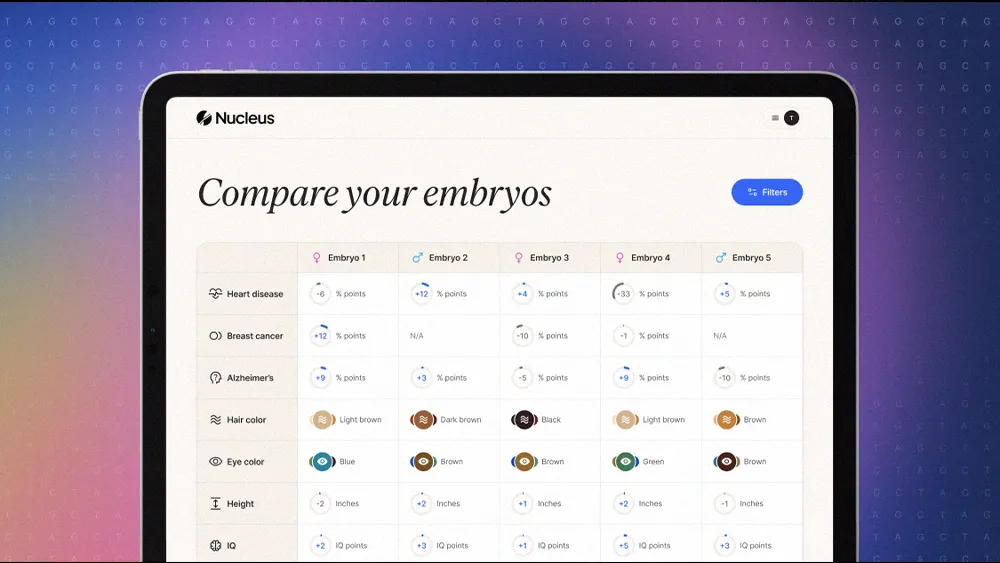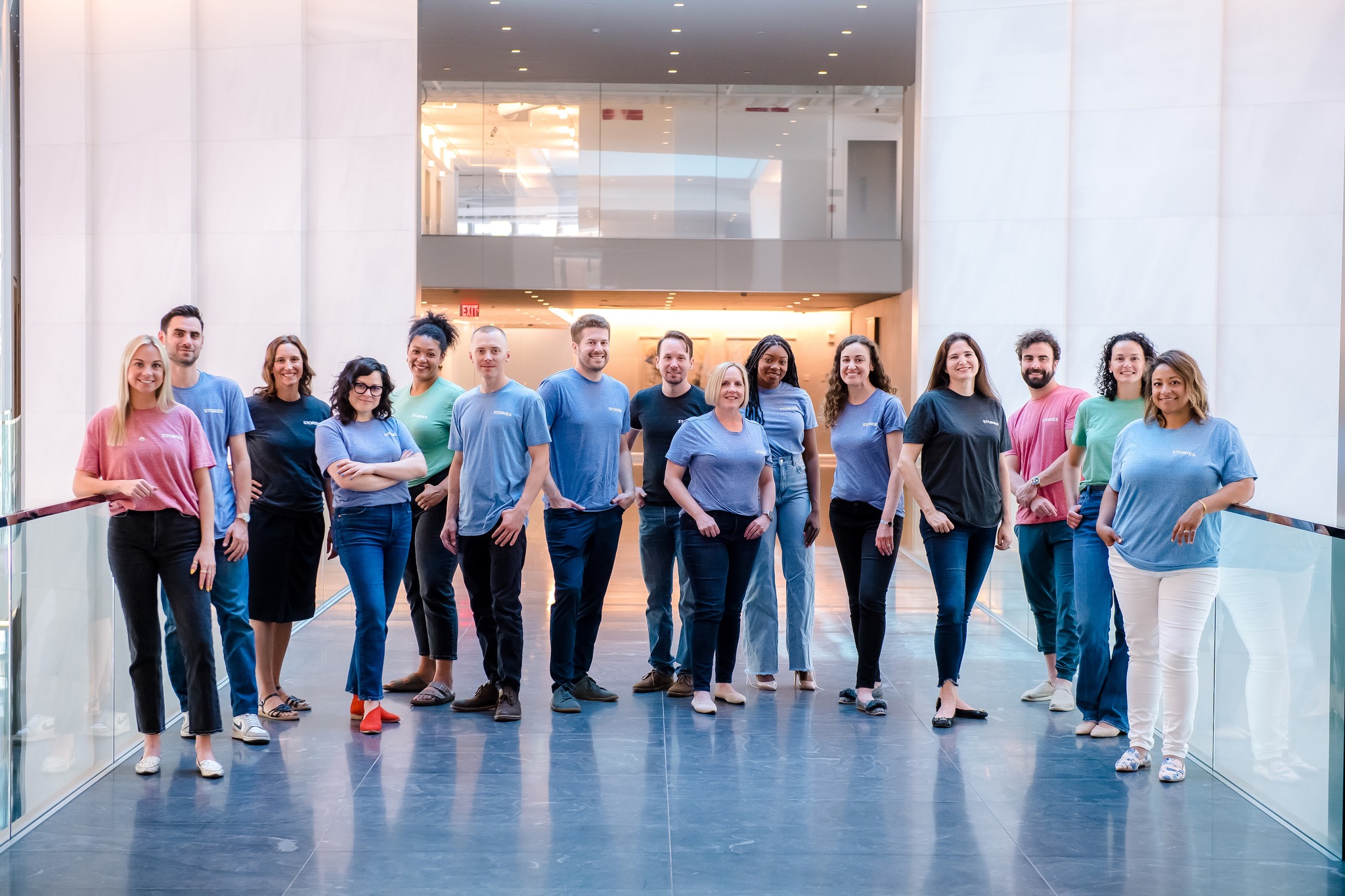Nucleus Genomics launches Nucleus Embryo, a software allowing parents to screen IVF embryos for traits like intelligence and appearance.
The launch has sparked ethical debates, with critics labeling it a new form of eugenics.
The debate over genetic selection is part of a broader global discussion on the ethics of prenatal testing.
Founder Kian Sadeghi defends the product as "preventative medicine," comparing it to early IVF controversies.
Genetics startup Nucleus Genomics has launched Nucleus Embryo, a controversial software that allows parents to screen and rank IVF embryos for traits beyond disease, including intelligence and appearance, as first reported by The Wall Street Journal. The move has ignited a fierce ethical debate over a new, app-based form of eugenics.
The genetic shopping list: For about $6,000, the platform lets would-be parents analyze up to 20 embryos for traits influenced by hundreds of genes, effectively handing them a genetic shopping list. Founder Kian Sadeghi, 25, defended the product on social media as "preventative medicine," asking, "if a couple exercises their right to choose their own embryo based on what matter most to them…that’s eugenics? We have lost the plot."
Noah, get the boat: The launch drew immediate and fierce backlash, with one venture capitalist commenting it "makes me so nauseous." The company’s methods rely on polygenic risk scores, which experts at the National Human Genome Research Institute caution are statistical tools for large groups and fall short of being a diagnostic crystal ball for any single person.
Bad science, big backers: This isn't the company's first brush with controversy; a previous product, Nucleus IQ, was criticized as "bad science as big business." The company, which counts Founders Fund and Alexis Ohanian’s 776 among its backers, partners with lab company Genomic Prediction to handle initial screening before users voluntarily upload the data to the Nucleus platform.
The future is here: Sadeghi is betting the controversy will fade, just as it did for early IVF stigma. In a launch video, he argued that what was once controversial is now an everyday practice, declaring that "genetic optimization... is now here and it’s here to stay.”
The wider view: The debate over genetic selection is playing out globally, with countries like Iceland grappling with the ethics of widespread prenatal testing. Back in the U.S., the consumer genetics industry faces its own hurdles, highlighted by the bankruptcy of 23andMe and the subsequent sale of customer DNA data. For those looking to unpack the complex legal questions, a report from Harvard Law School explores the regulatory implications of polygenic embryo screening.







